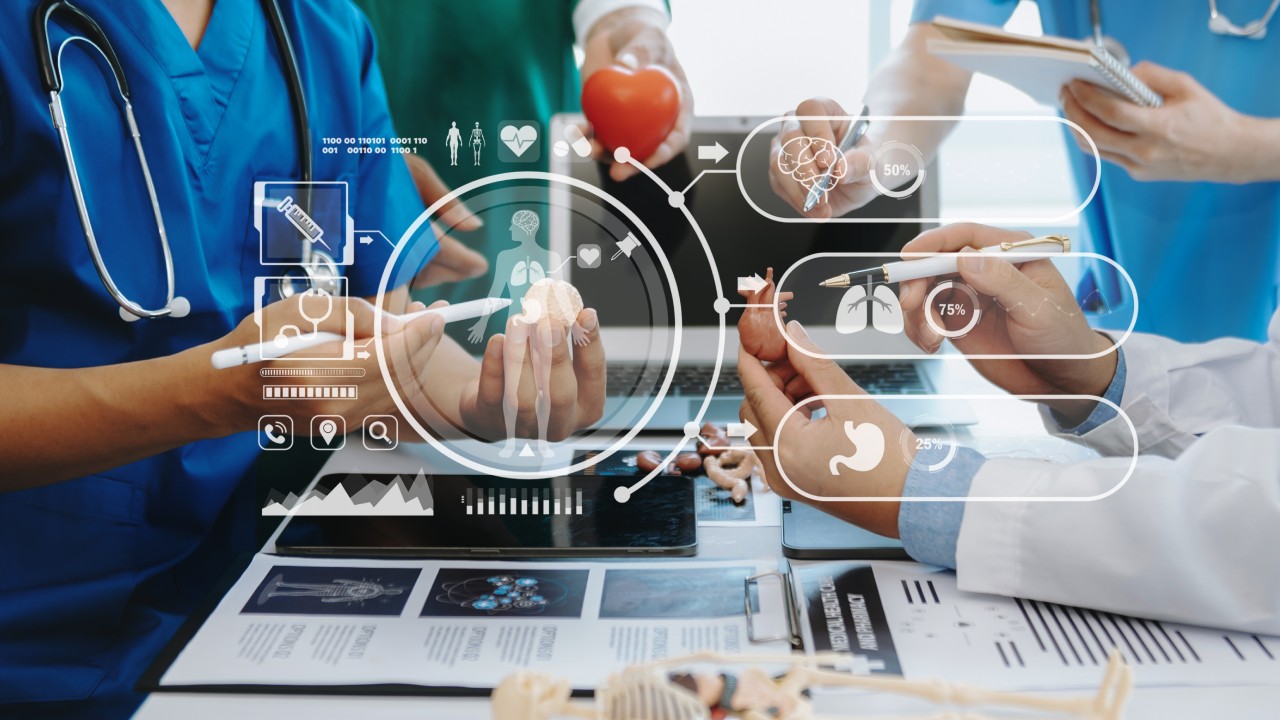Imagine a patient arriving in the emergency room, where timely access to medical history is crucial. Unfortunately, disparate systems often block this vital flow of information. This scenario highlights the pressing need for effective interoperability in hospitals. It sets the stage for exploring its profound impacts on healthcare efficiency and patient outcomes.
The lack of interoperability not only delays immediate care but also complicates longer-term treatment plans. We will explore how seamless data exchange systems can transform interactions with patient data and healthcare providers.
Core Benefits of Interoperability in Healthcare
Now, let’s explore the core benefits of interoperability within healthcare systems, highlighting how it fundamentally enhances operations and patient outcomes.
Enhanced Patient Care:
Interoperability in healthcare enhances patient care by improving coordination and efficiency. It ensures that healthcare providers have immediate access to comprehensive patient histories and critical health data, enabling timely and informed decision-making.
Improved Data Access and Sharing:
Effective interoperability facilitates the smooth exchange of information among healthcare providers. This streamlined data sharing supports comprehensive treatment planning and improves continuity of care across different healthcare settings.
Cost Reduction:
Interoperability reduces healthcare costs by minimizing redundant tests and administrative procedures. It enhances operational efficiency, allowing healthcare facilities to allocate resources more effectively and improve service delivery.
Challenges to Achieving Interoperability
Achieving interoperability in healthcare is fraught with significant barriers that can complicate its successful implementation:
Data Privacy:
Protecting patient information while facilitating data sharing poses a major challenge. Ensuring compliance with data protection regulations like HIPAA in the U.S., and GDPR in Europe, requires robust security measures and constant vigilance.
Technological Compatibility:
Healthcare providers often use disparate systems with varying levels of technology. Achieving compatibility across these systems to enable smooth data exchange is a complex task that involves upgrading legacy systems and adopting common standards.
Standardization:
The lack of standardized formats for data storage and exchange hinders interoperability. Developing and implementing universal data standards is crucial for seamless communication between different healthcare systems and software applications.
ShareArchiver’s Role in Healthcare Interoperability
ShareArchiver plays a crucial role in facilitating interoperability within healthcare systems. Here’s how it addresses the core aspects of data management and integration:
Secure Data Management
ShareArchiver ensures the security of patient data through advanced encryption and strict adherence to compliance protocols like HIPAA and GDPR. This robust security framework is foundational to protecting sensitive information while enabling necessary data exchanges.
Seamless Data Integration
Through innovative tools, ShareArchiver supports seamless integration across diverse healthcare systems. These tools standardize data formats and protocols to ensure smooth and error-free data transfers.
Unified Data Access
By consolidating data from multiple sources, ShareArchiver provides healthcare providers with a comprehensive view of patient records, enhancing decision-making and care continuity.
Enhancing Collaboration
ShareArchiver also enhances collaborative efforts across healthcare teams by enabling shared access to critical patient information and supporting multidisciplinary approaches to patient care. For more insights into effective medical records management, consider reading our detailed guide here.
These functionalities demonstrate ShareArchiver’s commitment to improving healthcare interoperability, ultimately leading to better patient outcomes and more efficient operational practices.
Future of Interoperability in Healthcare
The future of interoperability in healthcare looks promising and transformative, driven by ongoing technological advancements and regulatory changes.
Enhanced Data Analytics
The integration of AI and machine learning in interoperable systems is expected to revolutionize how data is analyzed in healthcare. These technologies will enable predictive analytics and more precise patient care by analyzing vast amounts of real-time data from multiple sources.
Standardization Across Systems
As interoperability expands globally, there will likely be a push for more standardized data protocols and formats. This standardization will facilitate smoother exchanges of information across international borders, enhancing global health initiatives and research collaborations.
Real-time Health Monitoring
Future interoperable systems will support more extensive real-time health monitoring and telemedicine, enabling continuous care and management of chronic conditions outside traditional healthcare settings.
The advancements will streamline healthcare operations and ensure that all healthcare decisions are informed by comprehensive, current patient data.
Conclusion
Interoperability in healthcare is crucial for enhancing patient care, streamlining data access, and reducing costs. As we look ahead, significant technological advancements and standardization efforts promise greater efficiency.
Innovations like AI, machine learning, and real-time health monitoring will play key roles. Embracing these developments will enable providers to deliver comprehensive, timely care, leading to improved health outcomes.








